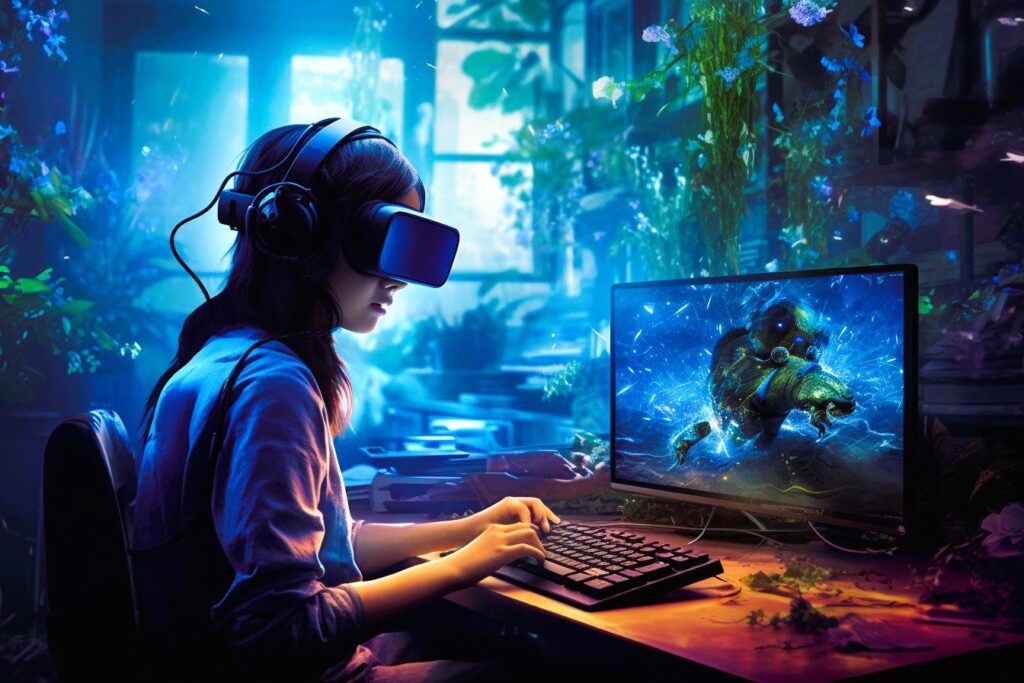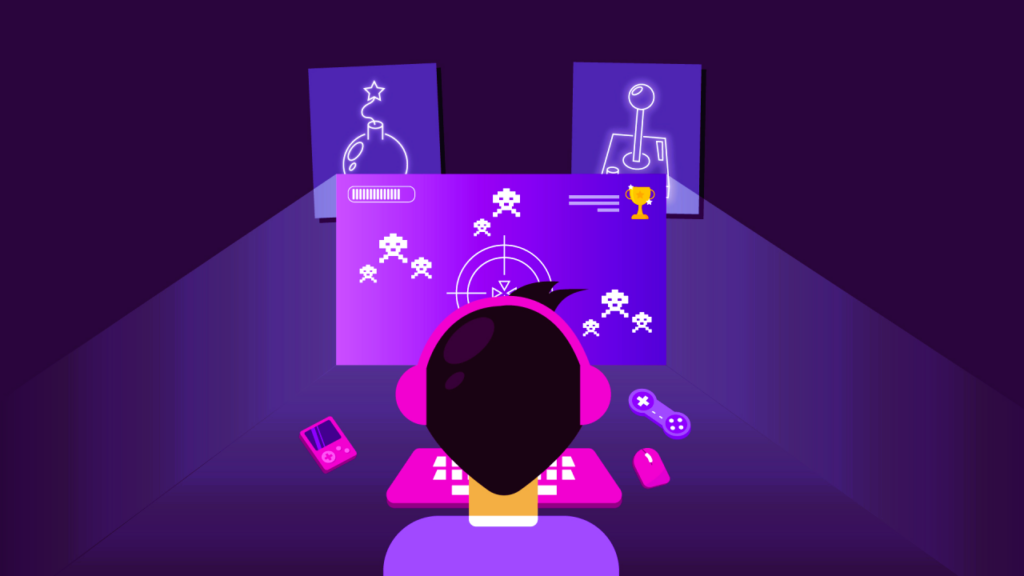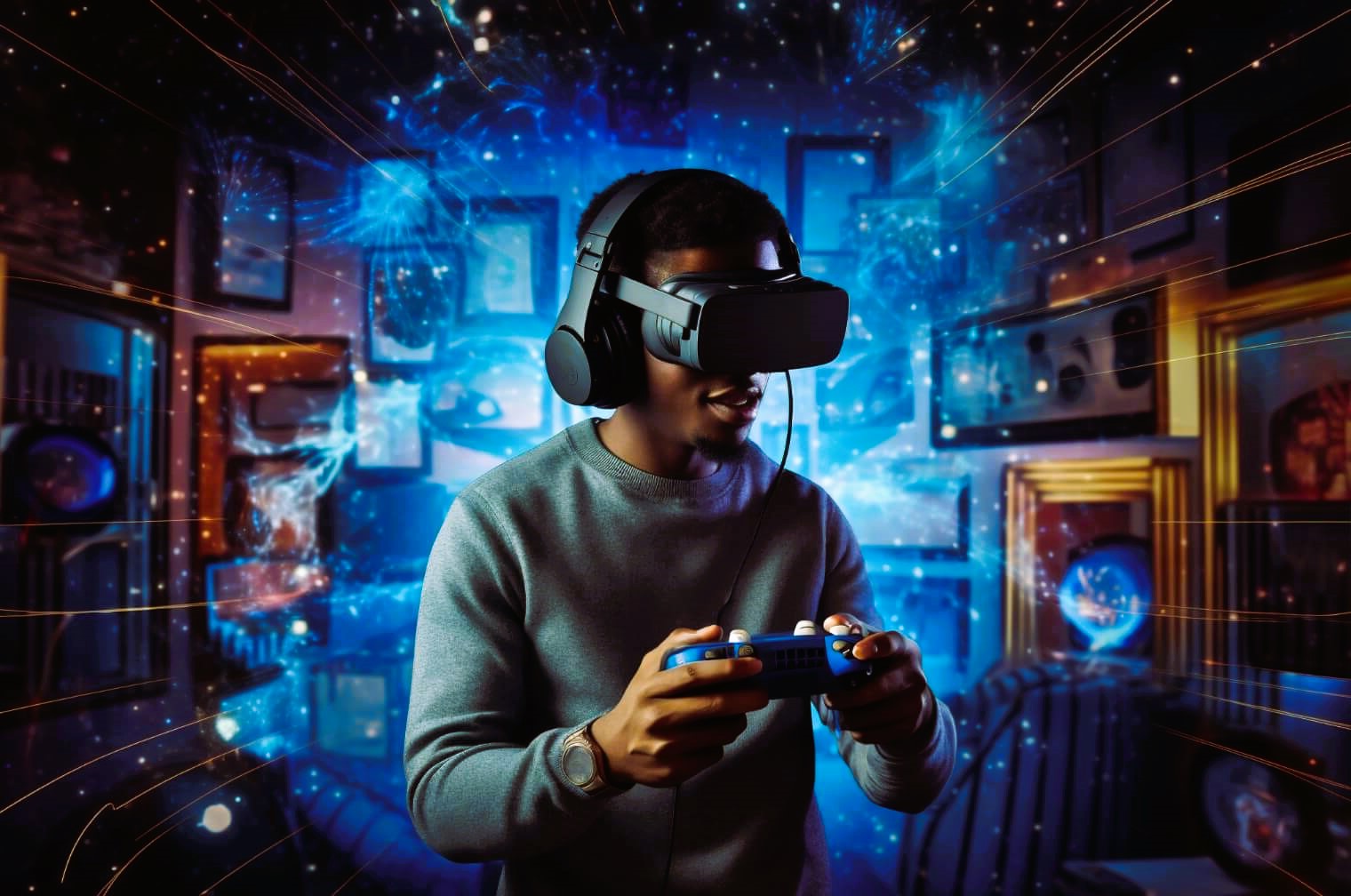Artificial Intelligence (AI) is revolutionizing the gaming industry, creating smarter opponents, more dynamic worlds, and deeply engaging player interactions. As gaming continues to push technological boundaries, AI is at the forefront, transforming how games are developed and experienced. Let’s explore how AI enhances video games and why it is crucial for the future of gaming.
1. What is AI in Gaming?
AI in video games refers to the implementation of algorithms that allow non-player characters (NPCs) and game systems to act intelligently and adaptively. Unlike traditional scripted behaviors, AI-driven actions are designed to respond dynamically to player input and environmental changes.
Historically, gaming AI was limited to pre-programmed behaviors. Early examples, like the predictable enemy movements in Pac-Man, relied on fixed patterns. Today, advances in machine learning and real-time decision-making algorithms enable AI systems to learn, evolve, and create lifelike interactions. To learn more about AI and its applications, visit Wikipedia.
2. How AI Enhances Modern Video Games

AI is applied across various aspects of gaming, creating smarter opponents, immersive environments, and adaptive gameplay experiences.
Smarter NPCs
Modern AI allows NPCs to act with realistic intelligence, challenging players in new ways. For instance, enemies in games like Halo and Far Cry adapt their strategies based on the player’s actions, such as flanking or using cover effectively.
- Dynamic Combat: AI opponents can evaluate the environment and decide optimal combat tactics.
- Believable Characters: Games like The Last of Us Part II use AI to give NPCs unique behaviors, such as calling out to each other or reacting emotionally to losses.
Procedural Generation
AI-driven procedural generation is used to create vast, unique game worlds.
- Examples: No Man’s Sky leverages AI to generate planets, ecosystems, and creatures, resulting in an expansive universe with billions of procedurally created locations.
- Replayability: Procedural generation ensures that every player’s experience is distinct, increasing replay value.
Realistic Animations
AI enhances character movements and animations, ensuring they align with the environment. For example, Red Dead Redemption 2 uses AI to create lifelike animal behaviors and realistic character animations. Read our Complete Guide to Understanding Gaming Tournaments and Competitions.
3. AI-Driven Personalization
AI in gaming is not just about smarter enemies or more detailed worlds; it’s also about tailoring the experience to individual players.
Adaptive Difficulty
Games like Resident Evil 4 use AI to adjust difficulty based on player performance. Struggling players encounter fewer enemies or less aggressive AI, while seasoned gamers face greater challenges.
Custom Narratives
AI can dynamically adapt game narratives based on player choices, creating unique storylines. Detroit: Become Human is an excellent example, where player decisions shape the outcome and character relationships in meaningful ways.
4. AI and Virtual Reality (VR)
AI plays a critical role in enhancing VR experiences by creating lifelike interactions and immersive environments.
- Interactive NPCs: In VR games like Half-Life: Alyx, AI-driven NPCs respond to player movements and actions in real time.
- Environmental Adaptation: AI ensures VR environments feel alive, with dynamic weather, lighting, and ecosystems.
- Player Engagement: AI in VR can track player behavior and adapt gameplay elements to maintain immersion and engagement.
5. Challenges and Limitations of AI in Gaming

Despite its potential, implementing AI in games comes with challenges:
Development Costs
Creating advanced AI systems requires significant resources, including time, talent, and computational power. This can inflate game development costs.
Uncanny Valley
Overly realistic AI behavior can sometimes feel unnatural, causing players to feel disconnected from the experience. Striking the right balance between realism and believability is a constant challenge.
Player Expectations
Sophisticated AI raises expectations for other elements of the game, such as storytelling and world design. Developers must ensure that AI integration complements the overall game experience.
6. The Future of AI in Gaming
AI’s role in gaming is set to expand dramatically, with exciting possibilities on the horizon.
AI-Generated Content
Future games may use AI to create stories, quests, and environments on the fly, ensuring every playthrough feels fresh.
Enhanced Multiplayer AI
AI could serve as realistic teammates in multiplayer games, bridging the gap between solo and cooperative play. For example, AI teammates in games like Apex Legends could provide strategic support that mimics human behavior.
Learning AI
Incorporating machine learning could enable AI characters to remember player actions and adapt over multiple sessions, creating a more cohesive and reactive gaming experience.
AI is revolutionizing video games by making them smarter, more adaptive, and immersive. From crafting lifelike NPCs to creating dynamic worlds and personalized experiences, AI continues to redefine what’s possible in gaming.
As technology advances, the line between player and game world will blur even further, enabling richer interactions and deeper engagement. The integration of AI not only enhances entertainment but also pushes the boundaries of creativity in interactive storytelling and gameplay.
In the end, AI is not just a tool for developers—it is a gateway to the next generation of gaming experiences. Whether you’re battling intelligent foes, exploring vast procedurally generated worlds, or crafting your own narrative, AI is shaping the future of gaming in ways that were once thought impossible.




